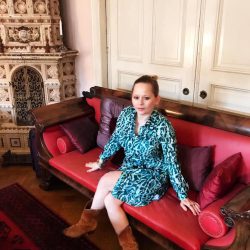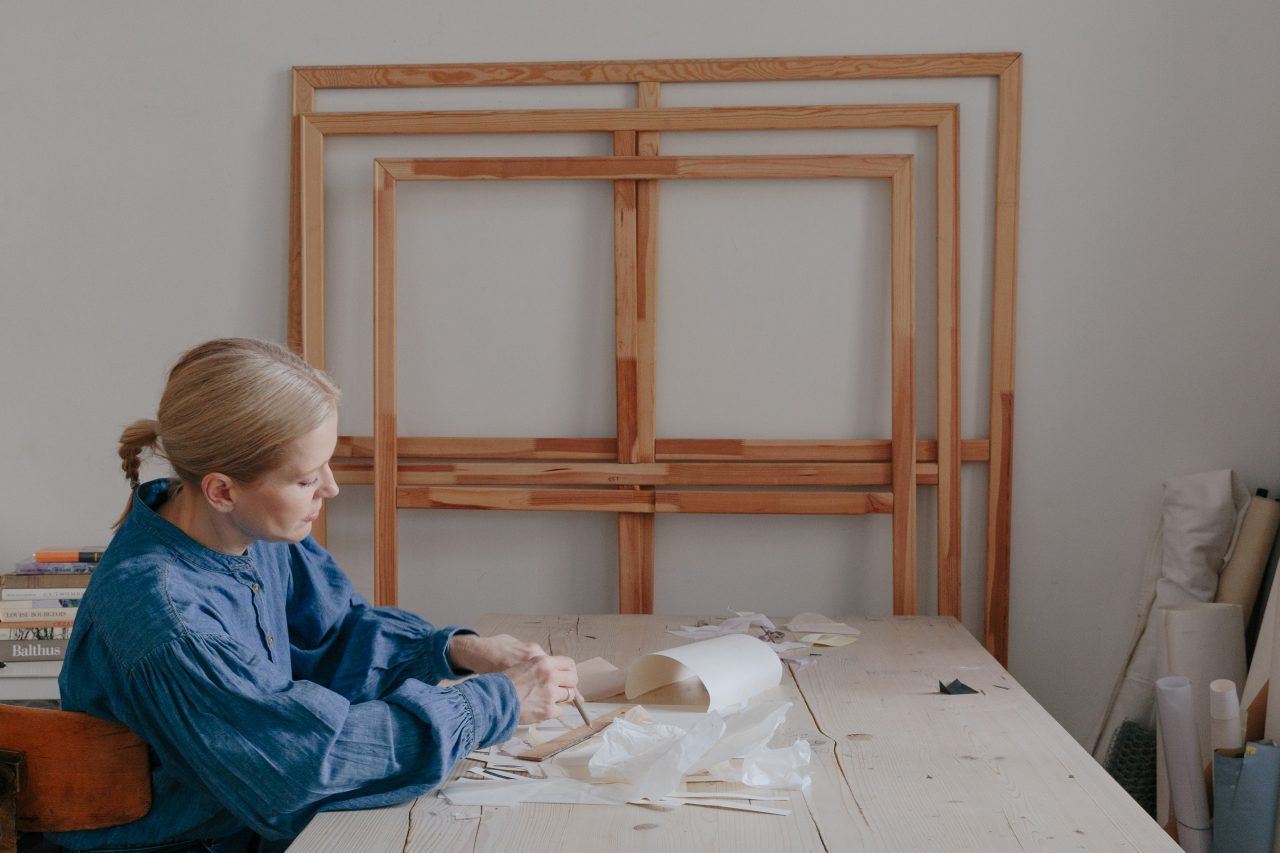
ANNA GENGER
...Page is loading...

Berlin, Germany
I do not paint surfaces, I paint with surfaces. Instead of a brush with paint on it, my painterly work consists of irregular segments of coloured and transparent sheets of paper which I apply to the canvas with glue. My technique and choice of materials could be regarded as a reflection on the nature of painting. My decision to abandon liquid paints in favour of two-dimensional, flat elements could be interpreted as a sort of investigation on...
Read moreI do not paint surfaces, I paint with surfaces. Instead of a brush with paint on it, my painterly work consists of irregular segments of coloured and transparent sheets of paper which I apply to the canvas with glue. My technique and choice of materials could be regarded as a reflection on the nature of painting. My decision to abandon liquid paints in favour of two-dimensional, flat elements could be interpreted as a sort of investigation on painting as an object. But I’d like to go further than that.
My latest works are made solely from remains of former works. The leftover pieces of the sheets of paper are scattered all over my studio floor. I collect and glue them onto middle to large format canvases. Each paper cutting the works are made of existed beforehand, and its shape derives of the shape that was cut out of it, when used for a previous group of works. The paper cuttings each work is comprised of is in fact a residue, a remain.
The most recent group of works called ‘Raw’ takes this approach even further, and not only the medium applied to the canvas is a ‘found’ piece, but the surface itself is recycled as well.
I collect curtains, sheets, fabrics and discarded canvas. They are in itself carriers of history and memories.
The additional layer of applied remains lets them resonate together, connecting past and present, found and new, personal memory and history.
What is it about your studio space that inspires you?
The silence
What is your favourite material to work with? How has your use of it evolved throughout your practice?
Paper, thin papers. I have stopped using actual paint a few years ago and only 'paint' with coloured transparent tissue papers. They help me achieve the desired layers while preserving a transparency. When I layer many of them they even start to take on a fresco-esque aspect which is very interesting.
What themes do you pursue?
I try to create spaces where the mind can be still. This is achieved through transparency, delicate texture, layers and geometric forms which provide a structure and therefore a space to feel safe.
What advice has had the biggest impact on your career?
My painting teacher Judy Glantzman in New York said: 'Don't let anyone into your studio as long as your art is not ready to be seen'. This advice helped me to stay focused on my work and not hurry out with half finished or not thought through works. It made me work very secluded for many years, and I didn’t carry my work outside the studio very much. I enjoy every minute in the studio and the process of creation itself. I believe that this advice gave me the quiet I needed to develop my art, and allowed it enough time to mature.
If you weren´t an artist, what would you be doing?
Architect. Translating books or poetry from other languages is something I find very interesting as well. It demands 'reading between the lines' and 'understanding the thing as a whole', which is necessary for the creation of a visual art work as well.
What are your favourite places besides your studio?
Home and the sea.